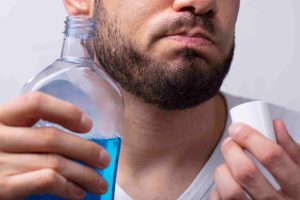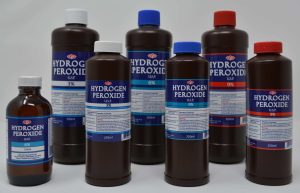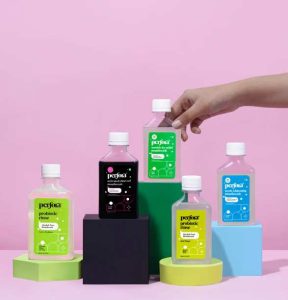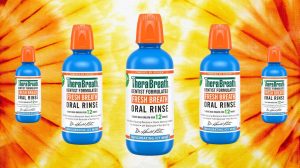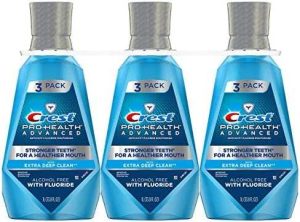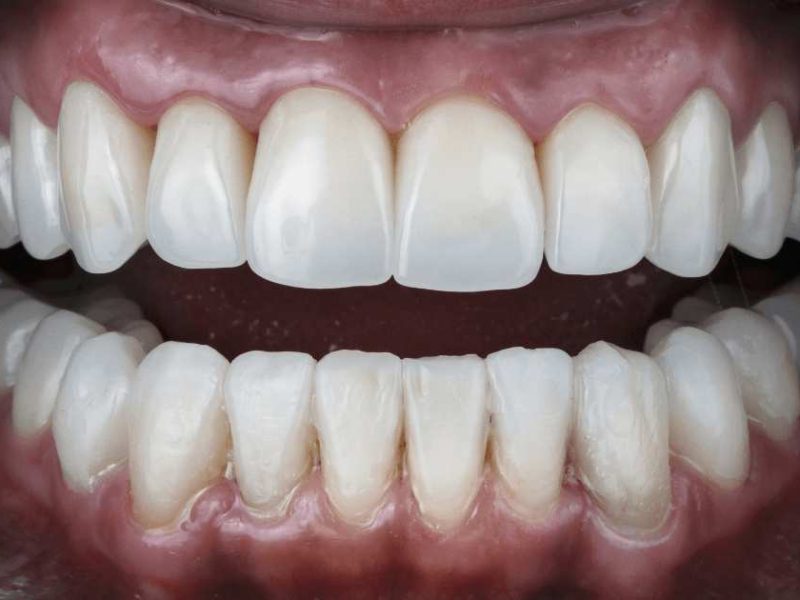Have you ever used mouthwash and experienced a strong burning sensation across your tongue, face, or gums? You’re not alone if you ever stopped mid-rinse and wondered, “Why does mouthwash burn?” Surprisingly common and sometimes leaves people confused whether that acute, tingling sensation is a sign of something positive or something negative.
Many people view the burn as evidence that the mouthwash is working to destroy germs and refresh breath. Actually, though, the reality is more complicated. While certain components help to clean your mouth, others could aggravate delicate oral tissues-especially in cases of dry mouth, mouth ulcers, or gum inflammation.
This page will dissect the causes of that familiar sting, expose the most often occurring components, and refute burn misconceptions. Most importantly, you will discover how to choose a mouthwash that’s effective, mild, and appropriate for your particular needs-so you can keep your mouth healthy without the discomfort.
Why Does Mouthwash Burn?
Active components used to destroy germs and refresh breath are mostly responsible for the burning feeling you experience after swishing mouthwash. Although these compounds help to clean the mouth, especially when used too much they might irritate delicate tissues.
The major causes of mouthwash burning are: High alcohol content; menthol, eucalyptol, or thymol; sensitivity to specific chemicals; pre-existing mouth sores or scrapes; dry mouth or oral dehydration. Let’s investigate the details about several components.
Common Ingredients That Lead to Burning Sensation
Alcohol
Many conventional mouthwashes include ethanol, a type of alcohol meant to breakdown vital oils and destroy germs. But ethanol also dries out the oral tissues; it causes a strong stinging or burning sensation; it may aggravate open sores or ulcers.
Fun Fact: Comparable to some spirits, some alcohol-based mouthwashes contain up to 26% alcohol!
Menthol, Thymol, and Eucalyptol
Although they help to create the burning sensation, these essential oils are mostly responsible for the minty freshness. Though they are antibacterial, if you are sensitive to them they can irritate you.
Chlorhexidine
Found in prescription-strength mouthwashes, chlorhexidine gluconate is quite successful in lowering plaque and gingivitis-but it might temporarily burn or change flavour.
Peroxide hydrogen
Particularly in higher doses, used in whitening and antimicrobial rinses hydrogen peroxide can produce minor burning.
Is Burning a Sign That Mouthwash is Working?
This is a well-known fallacy. Burning is not a good gauge of efficacy, even if a minor tingling might imply bacterial activity is being disturbed. Actually, too much burning can have negative effects, particularly if it discourages consistent use.
What really matters in mouthwash:
Look for ADA-approved products;
- Antibacterial power.
- Long-lasting freshness.
- Non-irritating recipe.
- Alcohol-free choices for sensitive consumers.
Who is More Likely to Experience Burning?
Some people find mouthwash irritate them more readily:
- People with dry mouth (xerostomia); those undergoing radiation or chemotherapy.
- Those with mouth ulcers or open sores.
- Children and elderly individuals.
- Those with sensitive gums or oral allergies.
If you belong to one of these groups, your choice of product might significantly affect things.
Techniques to Reduce the Burning Sensation
You are not completely giving up mouthwash. Try these useful techniques.
Move to a Mouthwash Free of Alcohol
These work equally well without the sting.
Reduce Your Mouthwash Strength
To lower intensity, mix it one 1:1 ratio with water.
Cut Use to Once Daily
You not have to rinse several times a day unless advised by your dentist.
Steer Clear of Rinse After Brushing.
Fluoride from toothpaste can combine with mouthwash to intensify burning.
Sensitive Formula Products
Designed for those with oral sensitivity or post-surgical rehabilitation,
Alcohol-Based vs. Alcohol-Free Mouthwash: A Quick Comparison
|
Feature |
Alcohol-Based |
Alcohol-Free |
|
Burning Sensation |
Common |
Minimal or none |
|
Kills Bacteria |
Yes, effective |
Yes, equally effective with proper formula |
|
Dry Mouth Risk |
High |
Low |
|
Best For |
Short-term, intensive antibacterial needs |
Daily use, sensitive mouths |
|
Recommended For Kids |
Not recommended |
With supervision, age-appropriate formulas |
|
Fresh Breath |
Strong, but may be harsh |
Gentle and long-lasting |
Ideal Mouthwash Alternatives Free of Alcohol
Searching for something milder? These are some highly regarded, alcohol-free choices:
TheraBreath Fresh Breath Oral Rinse
- pH-balanced and alcohol-free.
- Clinically proven to combat bad breath.
- Dentist advised for sensitive users.
Crest Pro-Health Multi-Protection Mouthwash
- Alcohol free.
- Helps to fight plaque and gingivitis.
- Leaves a clean, fresh feeling.
ACT Anticavity Fluoride Mouthwash
- Great for both teens and adults.
- Strengthens teeth.
- Gentle on soft tissues.
When should one see a dentist?
See a professional if mouthwash often aggravates your symptoms or causes discomfort. You can have an underlying problem:
- Oral infections.
- Gingivitis or periodontitis.
- Allergic reactions to components.
- Tooth sensitivity or enamel erosion.
Your dentist might suggest specific treatments or products catered to your requirements.
What therefore causes mouthwash to burn? Usually, it’s because of the alcohol and strong essential oils-such as menthol or eucalyptol-that destroy bacteria but can also be too harsh for sensitive teeth. Particularly if you have dry mouth, gum disease, or minor cuts and ulcers in the mouth, these components might aggravate oral tissues.
Still, the burning feeling does not always indicate that the mouthwash is doing well. Actually, it may indicate that it is overly severe for your requirements. The good news is that you can still enjoy all the advantages of mouthwash-fresh breath, less plaque, better oral hygiene-without the discomfort. Your mouth will be comfortably and efficiently protected by changing to a mild, alcohol-free formula certified by the ADA and including it into a regular oral care schedule. Oral hygiene should feel pleasant, not uncomfortable. Choose wisely, give a light rinse, and grin boldly.
Frequently Asked Questions
Could mouthwash cause allergies?
Indeed, some people might be allergic to flavours, preservatives, or essential oils among other ingredients. Signs could be rashes, swelling, or burning. Should this come up, stop using and see a dentist.
Is using mouthwash every day safe?
For most people, indeed—especially if they use an alcohol-free, fluoride-containing mouthwash. On the other hand, too frequent use of alcohol-based products could dry out your mouth and irritate tissues.
Should kids apply mouthwash?
Young children under six should not use mouthwash since they run the danger of swallowing. Older children should pick alcohol-free, kid-friendly formulations under close supervision with fluoride excluded.
Why after mouthwash does my tongue burn?
Strong essential oils or alcohol concentration in the product most likely explain this. Think perhaps moving to a milder recipe.
